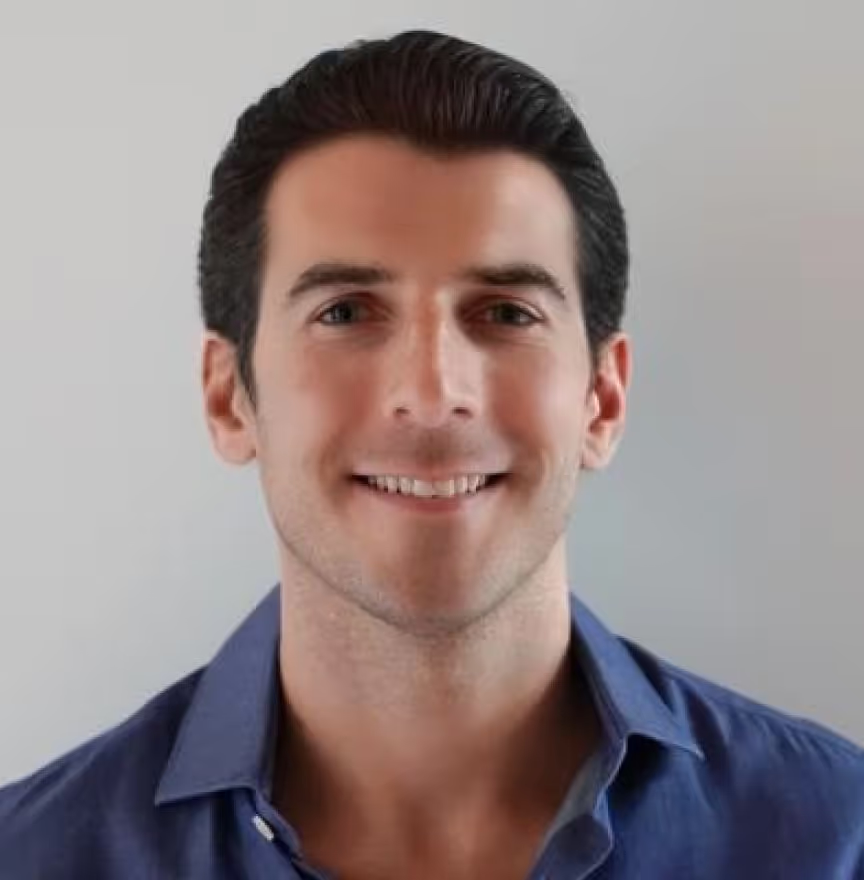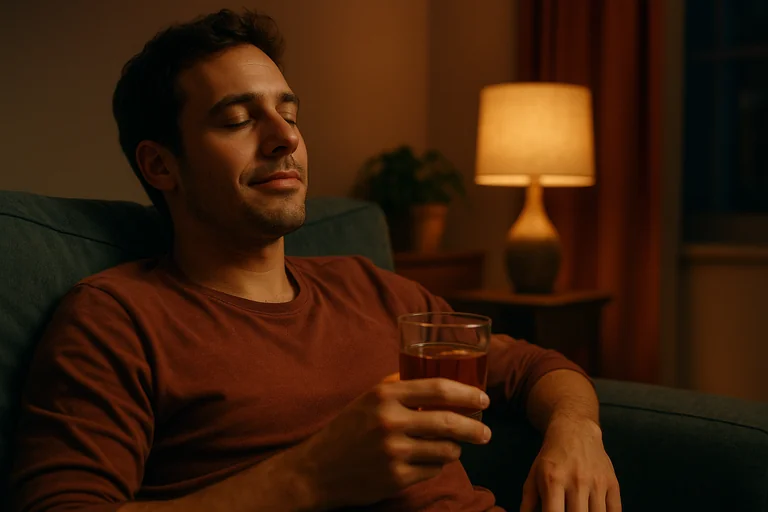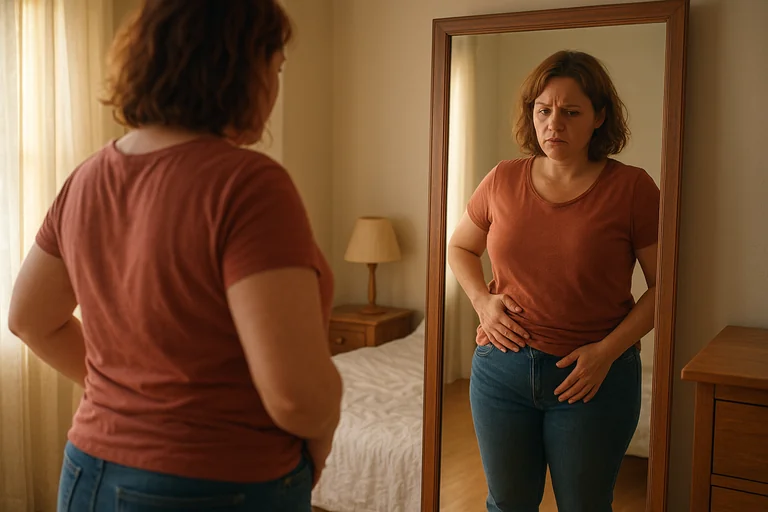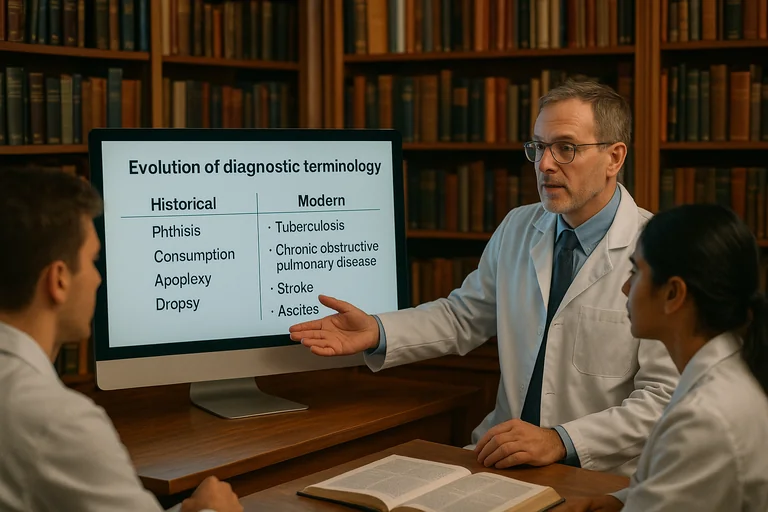A 2 minute assessment to get a personalized mental health or alcohol recovery plan.
Think quitting liquor is just about willpower and going cold turkey? Research shows why that approach fails and what evidence-based methods actually work.
What You'll Discover:
- Why FDA-approved medications can reduce cravings and make quitting easier.
- The dangerous withdrawal symptoms that require medical supervision.
- How behavioral therapy changes your brain's relationship with alcohol.
- What support systems actually improve success rates long-term.
You've made the decision. After months or maybe years of telling yourself you'd cut back "tomorrow," you're finally ready to stop drinking liquor altogether. But now that you've committed to this life-changing decision, you're facing a daunting question: how do you actually do it?
Or at least, that's what everyone tells you - just stop drinking and use willpower. In actuality, quitting liquor involves complex brain chemistry changes that can't be overcome with motivation alone. The internet is full of testimonials about cold turkey success, but those stories ignore the people who had seizures, hallucinations, or even died from unsupervised withdrawal. After all, if it was just about wanting to quit badly enough, nobody would struggle with alcohol. But in actuality, more recent research into alcohol cessation shows that medical intervention often makes the difference between success and dangerous failure.
It may be time to understand the science behind stopping liquor if you want to quit safely and permanently.
Why Your Brain Makes Quitting Liquor So Much Harder Than You Think
Don't let anyone tell you that stopping liquor is just a matter of willpower or finding the right motivation. The neurological changes from regular drinking create real, physical dependence that requires medical attention.
Many researchers, addiction specialists and doctors will tell you that alcohol fundamentally rewires your brain's reward and stress systems. When you drink regularly, your brain adapts by reducing natural dopamine production while increasing stress hormones to compensate. Even if you haven't been drinking for decades, these changes can happen within months of heavy consumption. It's particularly severe for people who drink liquor daily. For example, someone having several drinks every evening to "unwind" has created significant neurological adaptations.
Now that you have a better idea why willpower alone often fails, let's delve further into the medical approaches that actually work, some of which may be very surprising.
The FDA-Approved Medications That Change Everything About Quitting
The undeniable truth is that medications can make stopping liquor dramatically easier and safer. There's the immediate help with withdrawal, as well as long-term craving reduction.
Naltrexone: The Craving Killer
This is one of the major breakthroughs in alcohol treatment. The NIAAA confirms that naltrexone helps reduce the urge to drink by blocking opioid receptors. The Mayo Clinic explains naltrexone blocks the good feelings alcohol causes. Research shows naltrexone:
- Reduces drinking urges by 50-90%
- Prevents relapse after quitting
- Works as pill or monthly injection
- Has minimal side effects
- Isn't addictive itself
Acamprosate: The Brain Balancer
Although naltrexone reduces cravings, acamprosate addresses different withdrawal issues. The Mayo Clinic notes acamprosate may help combat alcohol cravings once you stop. But here's what's crucial - it specifically targets the anxiety and discomfort of early sobriety. The medication helps by:
- Stabilizing brain chemistry
- Reducing post-acute withdrawal
- Improving sleep quality
- Decreasing anxiety
- Supporting long-term abstinence
Disulfiram: The Deterrent
After considering craving medications, some people need stronger deterrents. That's where disulfiram comes in - creating immediate negative consequences for drinking.
The Mayo Clinic explains disulfiram prevents drinking through unpleasant reactions including:
- Severe nausea and vomiting
- Headaches and sweating
- Chest pain
- Difficulty breathing
- Anxiety and confusion
Worried about replacing one addiction with another? The NIAAA emphasizes all approved medications are nonaddictive.
Why Medication Combinations Work Better
Many people are surprised to find that combining medications improves outcomes. It's now believed that different medications target different aspects of addiction because:
- Brain chemistry varies between individuals
- Withdrawal symptoms differ
- Craving patterns change over time
- Multiple neurotransmitter systems are involved
The Timing That Makes or Breaks Success
Another serious issue with medication is timing. Even if you have the right prescription, starting at the wrong time can cause problems:
- Some require complete detox first
- Others can start while tapering
- Injection forms need scheduling
- Dose adjustments take time
- Side effects need monitoring
The issue of timing is why medical supervision matters. There are far too many people who've quit medications prematurely thinking they weren't working, but proper timing and patience are essential.
The Other Critical Component - Behavioral Therapy That Rewires Your Brain
The other major factor in successfully stopping liquor is addressing the psychological dependence. You may have the medications to reduce cravings, but without changing behaviors and thought patterns, relapse risk remains high.
Not all therapy approaches work equally well, but evidence-based methods show consistent success. Cognitive Behavioral Therapy (CBT) specifically targets the thoughts and behaviors that drive drinking. Very few people realize how automatic their drinking triggers have become. More often it's unconscious patterns developed over years.
What might be most troubling is how deeply embedded these patterns become. Other therapeutic approaches like Motivational Enhancement Therapy build internal motivation for change when ambivalence is high.
Why Withdrawal Can Kill You and When You Need Medical Detox
Now with understanding of how medications and therapy help, the immediate danger of withdrawal needs addressing. But more importantly, knowing when medical supervision is essential could save your life.
What's most concerning about alcohol withdrawal is its unpredictability. The Mayo Clinic states treatment may begin with medically managed withdrawal lasting 2 to 7 days. Essentially, your brain has adapted to alcohol's presence. That is why sudden cessation can trigger life-threatening symptoms.
This is obvious with severe alcoholism, but even moderate daily drinkers can experience dangerous withdrawal. Understanding how long withdrawal lasts helps you prepare. Symptoms progress through predictable stages. Minor symptoms start within hours, peak around day 2-3, then gradually improve. It will be worst before it gets better.
The takeaway is that if you've been drinking daily, especially liquor, medical evaluation before quitting could prevent seizures, hallucinations, or death.
The good news is that medically supervised detox makes withdrawal safer and more comfortable with medications managing symptoms.
Building the Support System That Actually Keeps You Sober
Clearly, stopping liquor isn't a solo journey. But understanding which support systems actually work versus feel-good advice makes the difference.
In addition to professional treatment, peer support provides unique benefits. The NIAAA notes mutual support groups offer valuable added support combined with treatment. AA isn't the only option - SMART Recovery, LifeRing, and other secular groups exist.
Let's look at what effective support actually means. Imagine you're two weeks sober and struggling with cravings at a work event. Having someone to text who understands that specific challenge provides immediate help. Support groups offer people who've navigated similar situations successfully.
Another key consideration is professional support continuity. The NIAAA emphasizes that primary care providers can provide treatment referrals and medications. Regular medical monitoring catches problems early and adjusts treatment as needed.
NEED TO KNOW: Support systems work best when layered - medical professionals for health monitoring, therapists for psychological work, and peer groups for daily encouragement.
Addressing the Mental Health Issues That Keep You Drinking
If you're using liquor to self-medicate anxiety, depression, or trauma, just removing alcohol won't solve the underlying problem.
The Mayo Clinic confirms that alcohol use disorder commonly occurs with mental health disorders. Treating only the drinking while ignoring depression virtually guarantees relapse. Integrated treatment addressing both simultaneously shows much better outcomes.
Common co-occurring conditions that complicate quitting include major depression affecting 40% of people with alcohol problems, anxiety disorders in 30-50%, PTSD especially in trauma survivors, and undiagnosed ADHD leading to self-medication.
These conditions don't excuse drinking but explain why quitting feels impossible. Proper diagnosis and treatment of underlying conditions makes sobriety sustainable rather than white-knuckling through misery.
But here's what's critical: many mental health symptoms improve dramatically after several weeks sober. What seems like permanent depression might be alcohol-induced. Professional evaluation can determine what needs treatment versus what resolves with sobriety.
Creating a Life Where You Don't Need Liquor Anymore
The hardest part about stopping liquor isn't the initial quit - it's building a sustainable sober life. If everything in your life revolved around drinking, removing alcohol leaves a massive void.
Successful long-term sobriety requires actively constructing new routines, relationships, and rewards. This isn't about avoiding triggers forever but creating a life where alcohol becomes irrelevant.
Start with daily structure replacing drinking rituals. If you drank every evening from 6-10 PM, those hours need purposeful activities. Exercise, hobbies, socializing, or projects fill the time while providing natural endorphins.
Social circles often require serious evaluation. Drinking buddies who only connect over alcohol won't support sobriety. Building relationships with sober people or those who respect your choice becomes essential.
Stress management without liquor requires new tools. Since alcohol was likely your primary stress relief, alternatives like meditation, exercise, therapy, or breathing techniques need development and practice.
Understanding whether you have drinking problems requiring treatment helps determine how comprehensive life changes need to be.
When Professional Treatment Becomes Non-Negotiable
The decision to seek professional treatment shouldn't wait until you've "tried everything else." Recognizing when you need help early dramatically improves outcomes.
Seek immediate professional help if you've had previous withdrawal seizures or DTs, drink more than 10 drinks daily, have serious medical conditions, experience hallucinations when not drinking, or have made suicide attempts. These situations require medical supervision.
The Mayo Clinic describes how residential programs include comprehensive treatment teams. Inpatient treatment provides 24/7 medical monitoring, intensive therapy, peer support, and controlled environment away from triggers.
Outpatient programs work for less severe cases, offering flexibility while maintaining work and family obligations. Intensive outpatient programs provide substantial support without residential stay.
The key is matching treatment intensity to your needs. Trying to handle severe addiction with weekly therapy wastes time and risks dangerous outcomes.
Ready to stop drinking liquor safely and permanently?
If you're serious about quitting liquor, if you want medical support to make it easier and safer, or if you've tried before without success, professional help makes the difference. Choose Your Horizon offers 100% online, confidential access to Naltrexone and other evidence-based treatments.
Ready to understand your relationship with alcohol and get personalized treatment recommendations? Take the online Alcohol Use Assessment to start your journey toward freedom from liquor with medical support that actually works.




